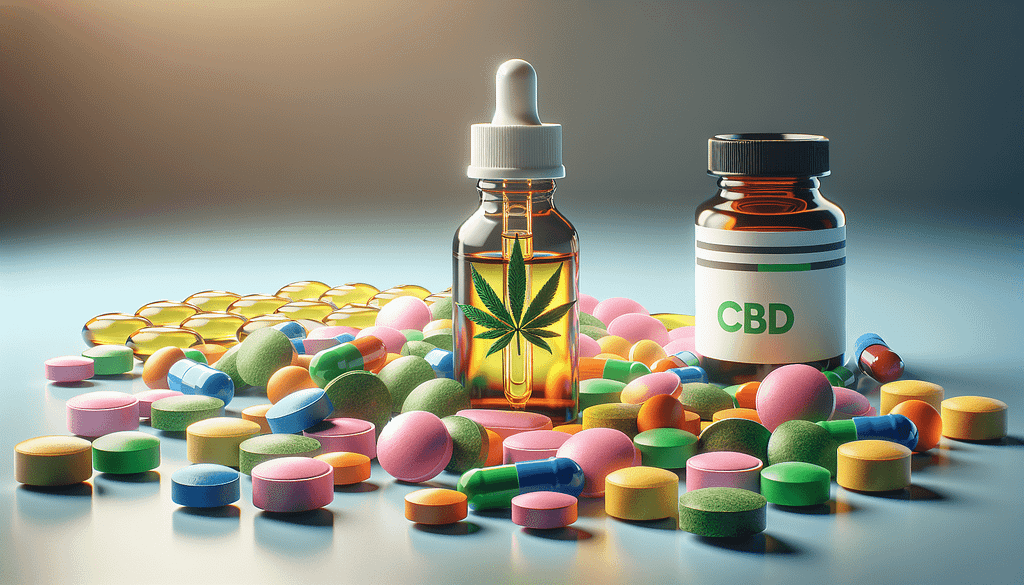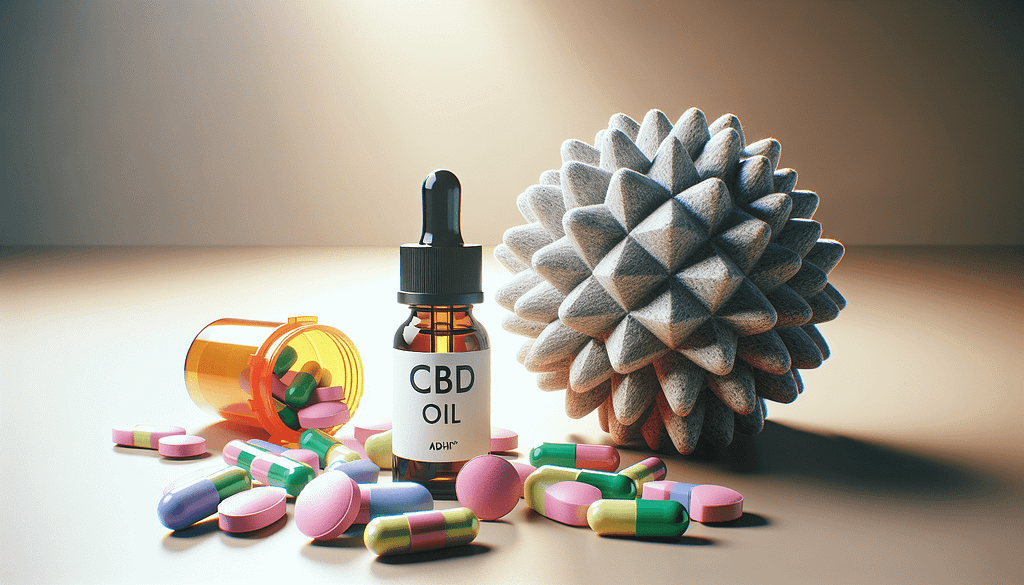As an Amazon Associate I earn from qualifying purchases.
Explore the benefits and risks of CBD vs. traditional ADHD medications for kids. Inform your decision with insights on side effects, efficacy, and parental testimonials.
Comparing CBD and Traditional ADHD Medications for Kids
In recent years, there has been growing interest in alternative treatments for various health conditions, including Attention Deficit Hyperactivity Disorder (ADHD) in children. One such alternative that has gained notable attention is Cannabidiol (CBD), a compound derived from the cannabis plant. Parents and caregivers often find themselves in a quandary about whether to stick with traditional ADHD medications, like stimulant drugs, or to explore the potential benefits of CBD. This article explores the comparison between CBD and traditional ADHD medications for kids, offering a comprehensive overview to help you make an informed decision.

What is ADHD?
ADHD is a neurodevelopmental disorder that affects many children and often continues into adulthood. It is characterized by symptoms such as inattention, hyperactivity, and impulsiveness, which can significantly affect a child’s performance in school and their interactions with peers and family. While the exact cause of ADHD remains unknown, it is believed to involve a combination of genetic and environmental factors.
Traditional ADHD Medications
Traditional medications for ADHD generally fall into two main categories: stimulants and non-stimulants.
Stimulant Medications
Stimulant medications, such as methylphenidate (Ritalin) and amphetamine (Adderall), are the most commonly prescribed drugs for ADHD. These medications work by increasing the amounts of certain neurotransmitters in the brain, like dopamine and norepinephrine, which help improve focus and reduce hyperactive and impulsive behaviors.
Non-Stimulant Medications
Non-stimulant medications (e.g., atomoxetine, guanfacine) are another option for treating ADHD. These meds typically take longer to show effects compared to stimulants and are often prescribed when stimulants are ineffective or cause unbearable side effects.
Common Side Effects of Traditional ADHD Medications
While traditional ADHD medications can be effective, they often come with a range of potential side effects, including:
- Decreased appetite
- Weight loss
- Insomnia
- Increased anxiety
- Mood swings
The severity of these side effects can vary from child to child, making it important for parents and caregivers to closely monitor any changes and communicate with healthcare providers.
What is CBD?
Cannabidiol, or CBD, is one of the many compounds found in the cannabis plant. Unlike tetrahydrocannabinol (THC), the psychoactive component of cannabis, CBD does not produce a “high.” Instead, it is often lauded for its potential therapeutic benefits, which include anti-inflammatory, anti-anxiety, and neuroprotective properties. CBD is available in various forms, including oils, gummies, and topical applications, making it relatively easy to incorporate into a child’s routine.
How CBD Works
CBD interacts with the body’s endocannabinoid system (ECS), a complex system that plays a role in regulating various functions like mood, pain, and appetite. Although research is still in the early stages, some studies suggest that CBD may help ease certain symptoms by promoting a state of balance within the ECS.
Potential Benefits of CBD for ADHD
While concrete scientific evidence is still limited, some studies and anecdotal reports suggest that CBD may offer several benefits for children with ADHD, including:
- Reduction in hyperactivity
- Improvement in focus and attention
- Decreased anxiety and stress
It’s worth noting that much of the research has been conducted on adults, and more studies are needed to fully understand the potential benefits and risks for children.

Comparing Efficacy: CBD vs. Traditional Medications
When it comes to managing ADHD symptoms, the efficacy of any treatment can vary widely from one individual to another. Traditional stimulant medications often show quick and noticeable improvements in symptoms but can also lead to significant side effects. CBD, on the other hand, may offer a more subtle improvement with fewer side effects, although more research is needed to substantiate its efficacy.
Safety Concerns
Traditional ADHD Medications
Traditional ADHD medications are generally considered safe when administered under the supervision of a healthcare provider. However, they can have severe side effects and may not be suitable for children with certain health conditions or those who are prone to substance abuse.
CBD
One of the key concerns with CBD is the lack of regulation and standardization, which can result in inconsistencies in product quality. Additionally, while CBD is generally well-tolerated, it can interact with other medications and may cause side effects such as drowsiness or gastrointestinal discomfort. It’s crucial to consult a healthcare provider before starting any new treatment, including CBD.
Legal Considerations
The legality of CBD products can vary significantly depending on where you live. In some places, CBD derived from hemp is legal as long as it contains less than 0.3% THC. However, laws are continually evolving, so it’s essential to stay updated and consult local regulations before considering CBD as a treatment option for your child.
Public Perception and Stigma
One of the challenges associated with using CBD is overcoming the stigma that surrounds cannabis products. Some parents may feel hesitant or face criticism for choosing CBD over traditional medications. However, increased awareness and ongoing research can help shift public perception and provide more options for families seeking alternative treatments.
How to Navigate Treatment Options
Given the complexities involved, it’s essential to approach treatment decisions thoughtfully. Here are some steps you can take:
- Consult with Healthcare Providers: Always discuss potential treatment options, whether traditional medications or CBD, with your child’s healthcare provider.
- Consider a Holistic Approach: Combining medication with behavioral therapies, lifestyle changes, and dietary modifications can often yield the best results.
- Monitor Closely: Regularly monitor your child for any changes in behavior, mood, or physical health and adjust treatments as needed.
Parental Testimonials
Many parents have shared their experiences with using CBD or traditional ADHD medications to manage their child’s symptoms. While personal anecdotes are not a substitute for scientific evidence, they can provide some insight into the real-world effectiveness and challenges associated with each treatment option.
Future Research
The landscape of ADHD treatment is continually evolving, with ongoing research aimed at better understanding both traditional medications and alternative options like CBD. Advances in science may pave the way for more effective and safer treatments, offering hope for families navigating this complex condition.
Conclusion
Deciding between CBD and traditional ADHD medications for your child can be a challenging and overwhelming process. Each option presents its own set of benefits and risks, making it essential to gather as much information as possible and consult healthcare providers to make an informed decision. Regardless of the treatment path you choose, the ultimate goal is to improve your child’s quality of life and help them reach their full potential.
If you found this article helpful, please clap, leave a comment, and subscribe to our Medium newsletter for updates and more articles like this one!
Disclosure: This story incorporates AI assistance for content creation.
Disclosure: As an Amazon Associate, I earn from qualifying purchases.
Amazon and the Amazon logo are trademarks of Amazon.com, Inc, or its affiliates.
